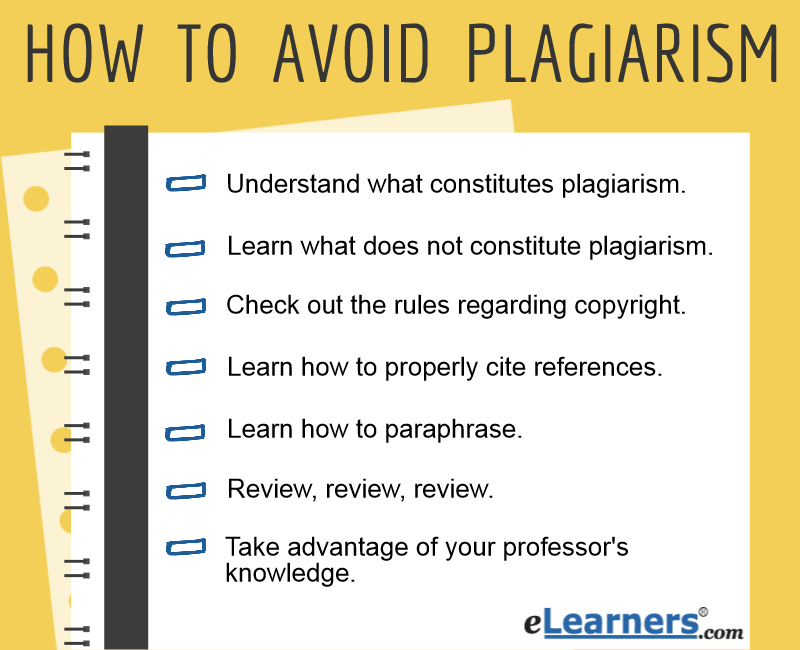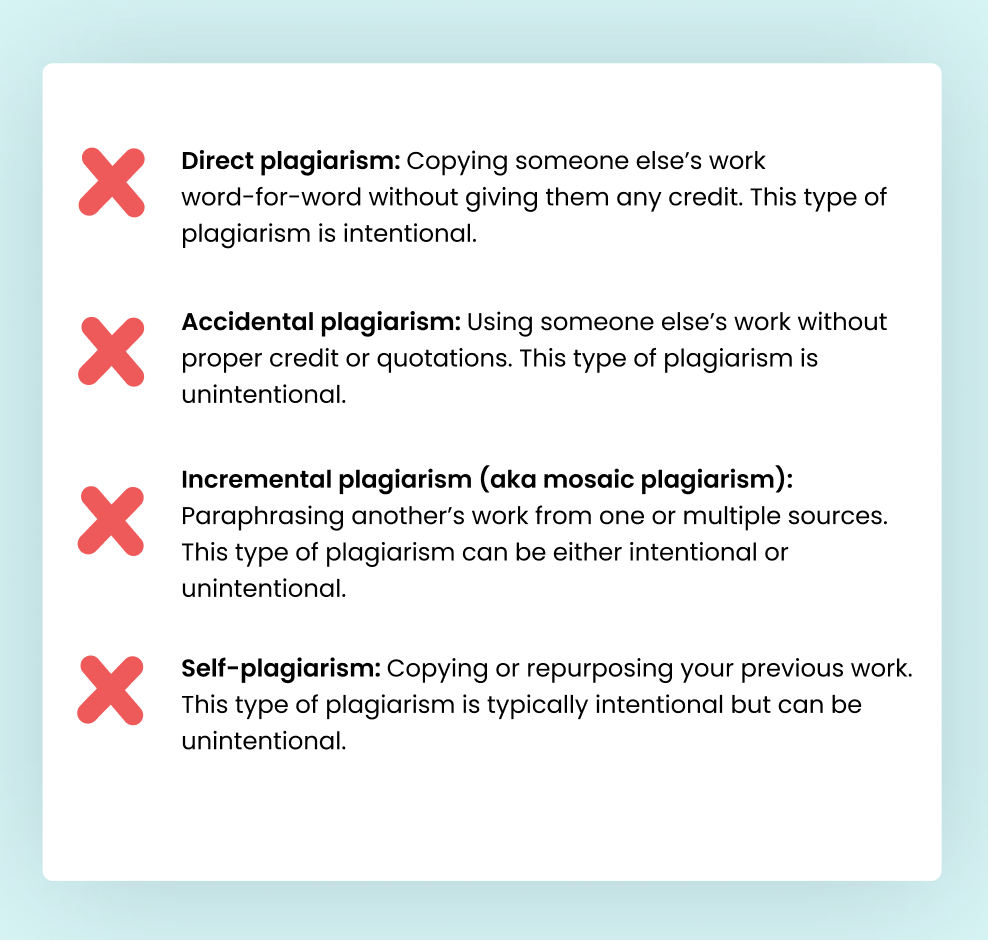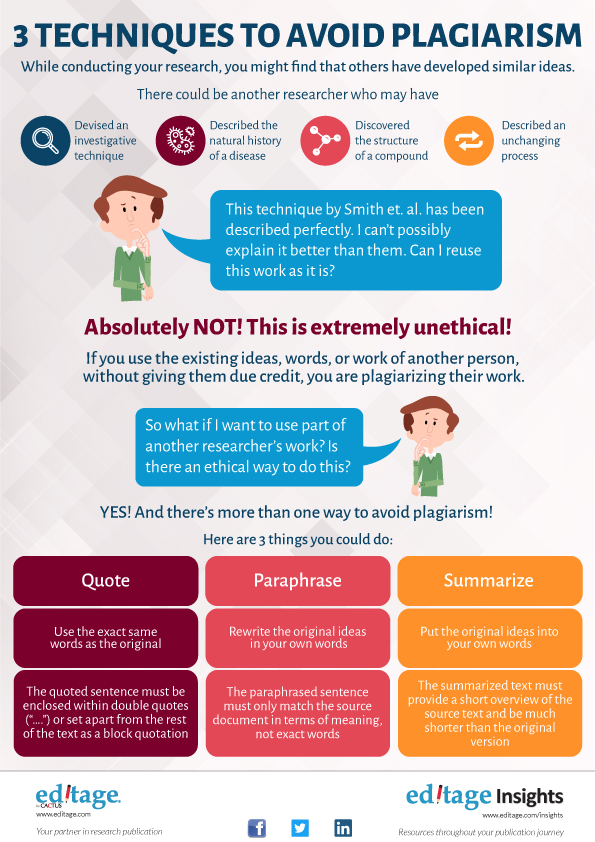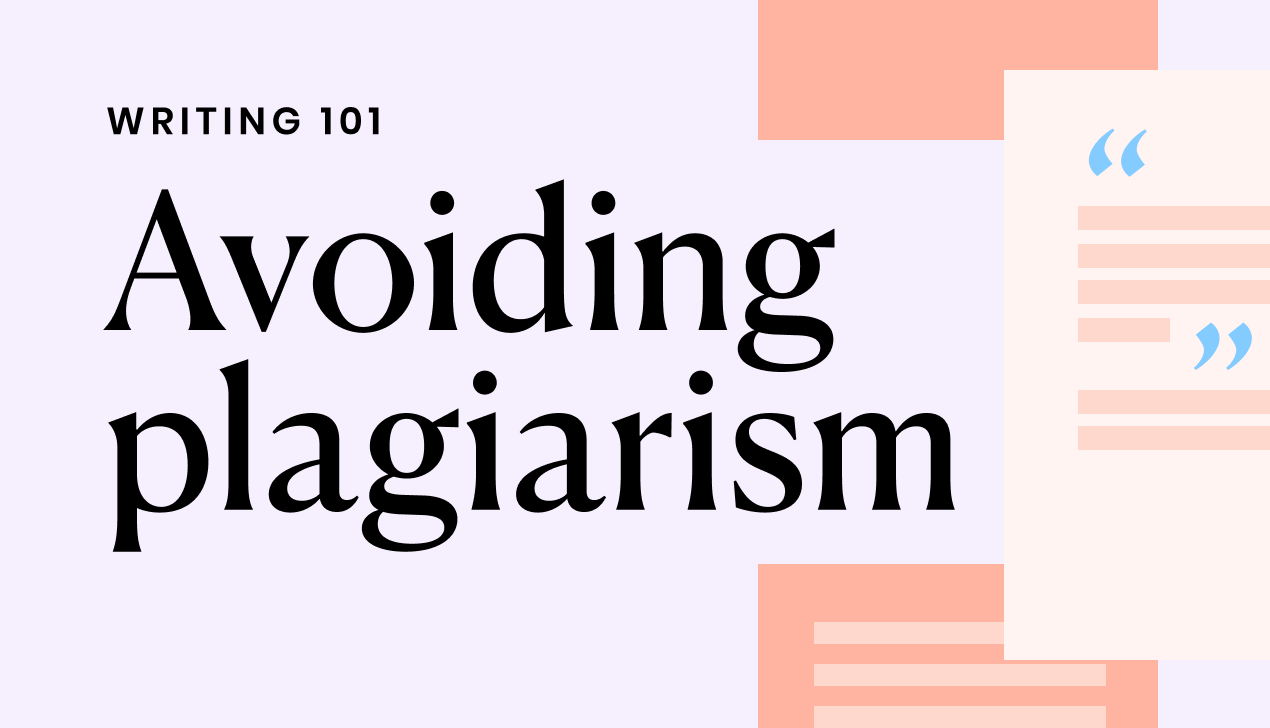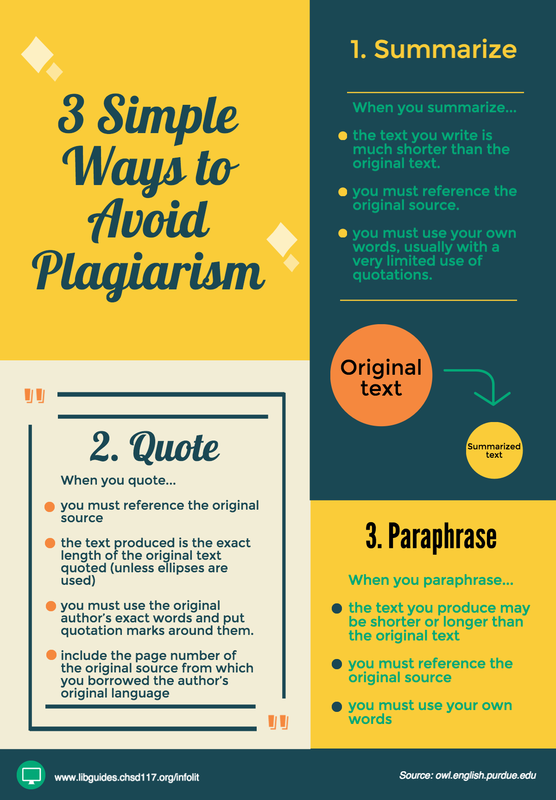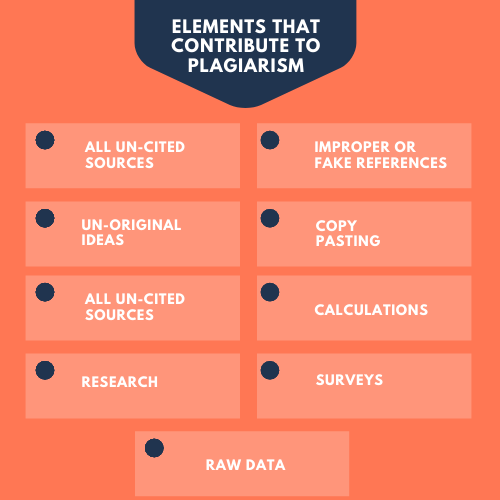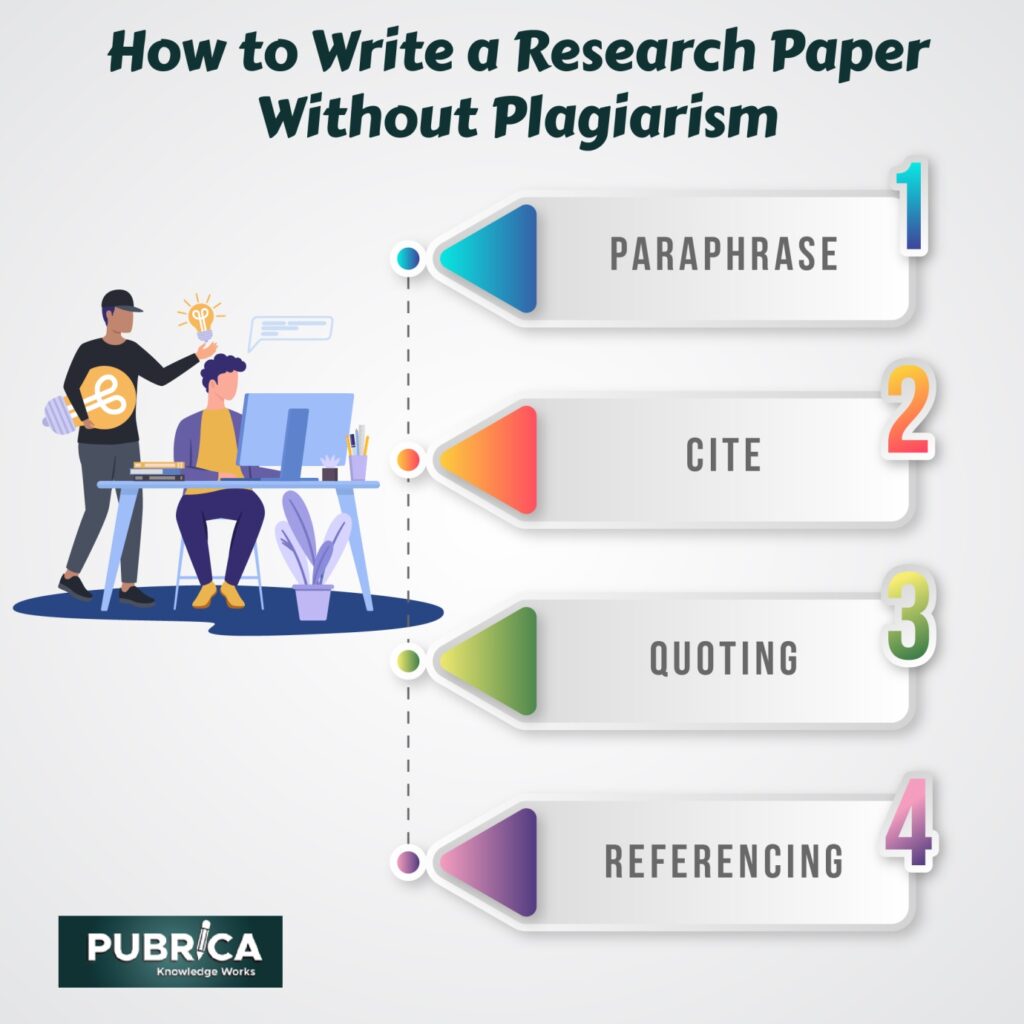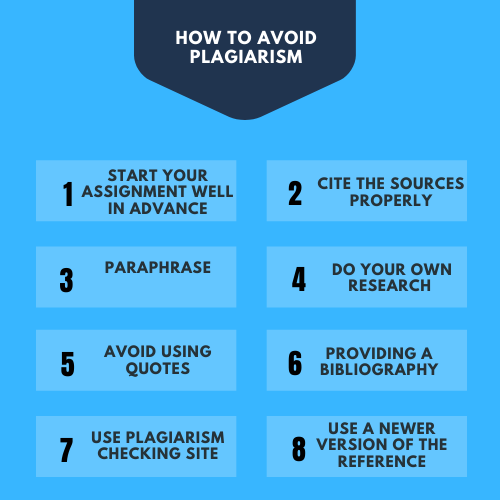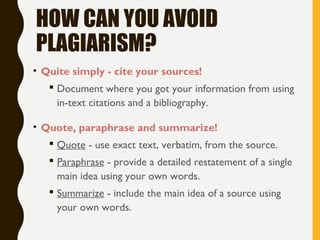Real Tips About How To Avoid Plagiarism

A conscientious writer always distinguishes clearly between what has been learned from others and what he or she is personally contributing to the reader's understanding.
How to avoid plagiarism. Obviously, paying for a paper or passing off someone else's writing as your own both qualify as plagiarism — but so does failing to cite your sources, paraphrasing too closely,. Citing sources is the best way to build credibility for yourself to your. Find and fix accidental plagiarism
Don't procrastinate with your research and assignments. So be sure to allow enough time to write your. This requires a lot of hard work, and it takes time.
Teaching about plagiarism occurs as early as 6th grade in the ela classroom, but students continue to plagiarize year after year, even into high school and. Ad the key to writing success = chegg® writing. Once you have committed to avoiding plagiarism in your writing, put your commitment into practice by.
Here are some specific tips: If it is your own ideas, there is no worry. Avoiding plagiarism requires students to engage deeply with ideas, research and readings;
Make sure your paper is on point before you turn it in. One of the easiest ways to avoid plagiarism is to use your own thoughts and ideas. Attribution inevitably is missed, often leading to allegations of plagiarism.
Plagiarism is passing off someone else’s writing as your own, and it can have serious consequences. Quoting means adopting the original author’s wording directly and putting it in. The best way to avoid plagiarism is to become a good writer!
